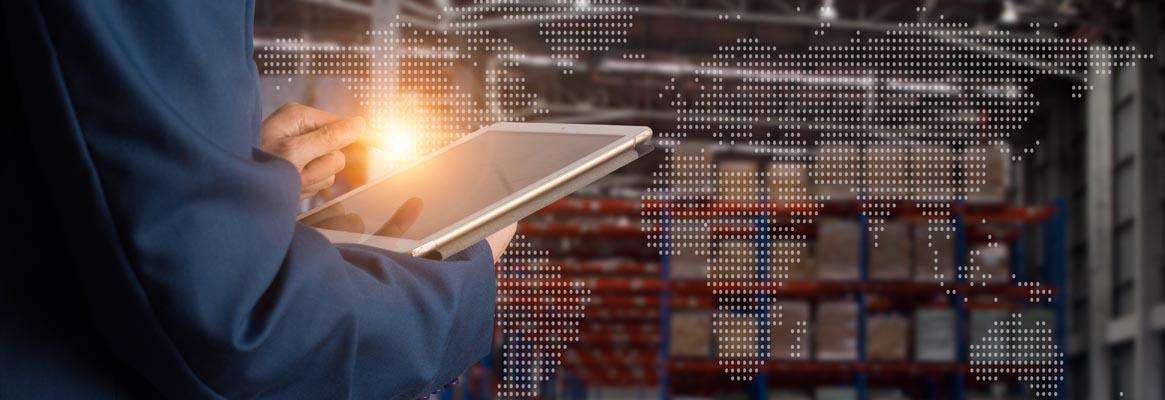Ratheesh D, Director, CABT Logistics talks about the application of advanced analytics and automation to aid further growth of e-commerce.
The world today is connected via technology, and it has seeped into our lives to revolutionise how we live. An instrumental application of technology and artificial intelligence (AI) is e-commerce. With the pandemic propelling e-commerce and Q-commerce (quick commerce) to new heights, understanding the consumer purchase patterns and how their environment affects them also becomes important. From companies shifting to virtual marketplaces and streamlining logistics to make sure that the consumer could access products from the comfort of their couch, advanced analytics and automation are blazing the trail for a world where virtual shopping will be more personalised, targeted and instantly gratifying.
Advanced analytics is the backbone of e-commerce and to aid this ever-changing and evolving sector, automation is the new buzzword. Having the luxury of getting products delivered at their doorsteps has given customers the impetus to shop online for perishable and non-perishable items and the success and growth of this graph depend on the efficiency of supply chain management, especially last-mile delivery. The transformation in supply chain management especially after the pandemic has been exponential to the point that companies are looking to shave off even excessive seconds from their delivery timelines. This has called for innovation in automation and robotics, especially in the supply chain.
Retail behemoths have already started drone deliveries in limited areas to understand how it can help in rapid deliveries without risking the lives of the riders. Also, automation is being witnessed in backend processes of supply chain management as well in the first- and last-mile logistics delivery.
Back bending processes such as sorting, order picking and forward delivery allocation are currently manual, which increases the risk of delayed deliveries due to human error. Automation can help companies by eliminating human errors, unnecessary delays, risks to human life, and pilferage, resulting in speeding up the process. This also leaves the companies open to shifting their human workforce to tasks that are not mundane and help the company in real-time growth with strategic planning and growth ideation.
With the logistics arm agile and strong, here’s how enhancement in tech tools and analytics is helping businesses understand dynamic consumer behaviour, delivery patterns and purchase patterns to comprehend e-commerce and Q-commerce.
1. Augmented marketing - The world has become smaller with e-commerce. With such a large audience to tap into, businesses need to prune their consumer, an audience that is right for their product and resonated with their brand. Insight is key for the same. To ace e-commerce and Q-commerce knowing the who, where, how, when and what of the online marketing budget is what makes or breaks an online campaign. Measuring these metrics and analysing the same to determine a budget for maximum ROI is only possible with advanced analytics.
2. Personalised shopping experience - Advanced analytics not only share purchase and other crucial insights with the business but also make it possible for them to give the consumer that personalised shopping experience that they used to find while visiting their neighbourhood shops. It keeps the warmth and the feeling of familiarity alive. Helping companies maintain the recall factor, advanced analytics build customer loyalty. Personal recommendations, quick reconciliations, and delivery before the scheduled delivery time help in binding the customer to your business. Analytics help retailers study the users’ behaviour, demographics, time spent on each page, and product preferences to determine how the site should be structured based on customers’ preferences. All such analysis is useful in determining the product strategy and offering the best deals to the customer database.
3. Supply chain management - Logistics has transcended from being a back-end process to being an important limb of a business. Last-mile delivery and end-to-end visibility help in keeping the supply chain robust and agile. Analysis of consumer behaviour, their availability, road conditions, traffic conditions, rider availability, and product sales based on a particular demographic is what helps companies scale up operations. Strategic decisions such as micro-warehousing, setting up dark stores, sorting facilities, manpower, rider tie-ups based on pin codes and demand and supply, etc are only possible with advanced analytics.
4. Demand and supply - Projecting and predicting a trajectory for inventory fulfilment, advanced analytics keeps a tab on demand and supply based on past purchase patterns. It also tracks orders, their cancellations and probably even future buying patterns. Besides this, end-to-end visibility also keeps the retailers aware of any order cancellations in real-time, thus helping them adjust their inventory quantity accordingly, optimising cost and time.
5. Improved customer retention - Retaining customers is not an easy task, especially in the current scenario. Fortunately, the use of the available data pool makes the job much easier. Using chatbots effectively increases customer engagement and retention by solving customer issues seamlessly. Chatbots eliminate the need for other customer inquiries, such as emails and phone calls, and they can also keep the customers in the loop about new products, services, offers, events, etc on a personalised basis. Marketing and advertising messages that are personalised and targeted to customers can therefore significantly increase customer retention. Based on this, McKinsey’s omnichannel personalisation research indicates a 10-15 per cent increase in revenue and retention from omnichannel personalisation strategies. Moreover, it highlights building better customer data and insights as a key element of personalisation, an asset that also adds value across the value chain.
Efficiency, convenience and personalisation are what customers have come to expect from companies, especially for e-commerce. Advanced analytics and automation are helping this sector accelerate growth at a scale never imagined before.









Comments